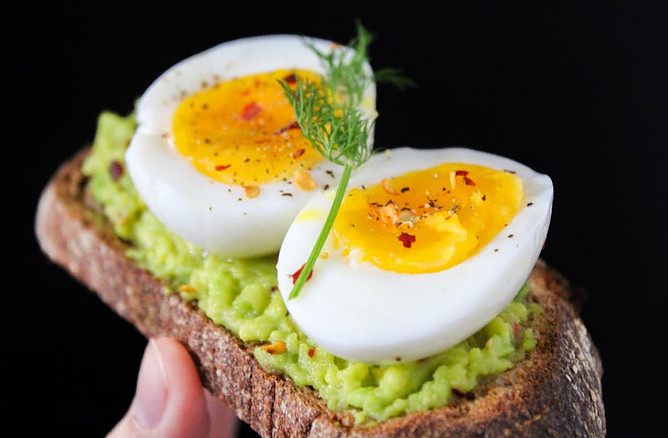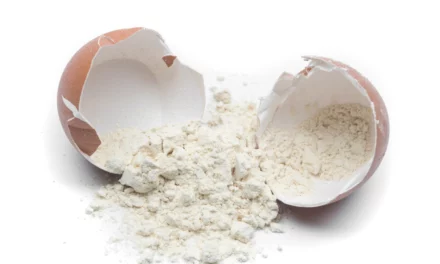Almost everybody knows what an egg is. They know there’re different kinds of eggs. There’s the duck eggs, turkey eggs, goose eggs, even emu eggs. But then there are chicken eggs, which is typically the kind we eat, although many of the others are just as edible. It’s at least the kind in a grocery store that you buy in a gray carton. But, do you know whether Eggs Good for High Blood Pressure?
There are a million ways out there to prepare an egg to get it ready to eat. There’s scrambled, hard-boiled, over-easy, over-hard, sunny side up, etc. You can also make them into a different, bigger dish, as well, such as eggs benedict or deviled eggs.
I’m sure you know most of this. But, have you ever thought about the health benefits and issues that come with eating eggs? What could it do if an egg has gone bad and you had it? What happens if it’s a good egg and it’s likely to benefit you in some way? Most importantly, how eating eggs would impact hypertension? When are eggs good for high blood pressure? And, when they are bad? Well, if you haven’t, keep reading because that’s what we’re going to be talking about today.
Let’s start by discussing what an egg actually is, in case you don’t know, or you want to learn more.
So, let’s get started.
What is an Egg?
Very simply, an egg is an oval-shaped organic vessel that are laid by female animals, and are typically cooked and eaten by humans.
Although just about every type of egg is edible, chicken eggs are the most common, and are what most people choose to eat.
Eggs are served in many different ways (as I stated and talked about above), and are very nutritious to humans. They contain tons of vitamins, minerals, and other nutrients, and they have many health benefits for humans.
And, as of recent years, people have been wondering if it might even help lower blood pressure for those with high blood pressure problems. That, as well as other health benefits of eggs, when to take caution while eating eggs, and when eggs are good for you and when they are bad for you. That will all be discussed in this article today.
Starting with other, more specific, health benefits of eating eggs… Let’s talk about that now.
Health Benefits of Eating Eggs
Eggs have many benefits to peoples health, but not many people know what they are.
It’s known fact that eggs are good for you, but people rarely talk about the specific benefits eating eggs can give you.
Well, let’s discuss the most common health benefits eggs can have on someone. Like I said, eggs have many benefits to peoples health, including the following.
- They are very nutritious, and are a great source of vitamins, minerals, and other nutrients, such as: vitamin b-12, vitamin A, vitamin D, vitamin K, folate, selenium, phosphirus, etc.
- Eggs are linked to reducing the risk of heart disease
- They contain antioxidants, such as Lutein and Zeaxanthin, that have major benefits for eye health.
- Eggs are high in protein, and they have all the essential amino acids in the right ratios.
- And, many more.
Eggs are, overall, considered a food that is good for people, and these are just some of the reasons why.
Although most of the time they are good for you and have many benefits (in most people), there are times when you should take caution while eating eggs.
See what the American Heart Association say about eggs.

Tip: Did you know amino acids can help you fight better with stress, depression and anxiety? Eggs can improve your amino acid levels.
Let’s discuss that next.
When Should You be Cautious Eating Eggs?
There are a few reasons why you should be cautious while eating eggs. However, the biggest reason can result in you getting very sick if you do not use caution.
Basically, eggs are just like meat, chicken, seafood, and dairy products. They are all products from an animal. Some eggs contain bacteria, which can cause some serious food poisoning. If eggs are not handled the correct way, your health can be at risk all because you chose to eat an egg.
One way you can tell if the egg is rotten is if you break the egg, and the yolk falls apart. If the yolk doesn’t stay together, and instead falls apart and spreads out completely, into the egg white, before you actually mix them together, then the egg is most likely contaminated with something, typically a kind of bacteria.
So if you break an egg and the yolk falls apart, don’t eat it, or you’ll be risking getting very sick. Obviously, in this situation, eggs would be very bad for you to consume.
There are a few other instances where eggs would be bad for you as well. Let’s discuss those now.
When are Eggs Bad for You?
There are a couple situations in which eggs are bad for you.
One is the way I’ve explained above, when the yolk breaks, the egg is usually filled with bacteria, and that can make you very sick. So that’s one situation in which eggs are bad for you.
Another way eggs are bad for you is the quantity you eat them in. Typically, the average person should have no more than three eggs a day. Three eggs are perfectly safe assuming you are healthy with no any other disease, but eating any more could be a risk, depending on the person, and many different factors about them and their body.
Finally, the other time when eggs are bad for you is when you have high cholesterol. When you have high cholesterol, all eggs will do is raise it, and depending on how high it already is, that can be very dangerous.
So, if you do attempt to use eggs to lower your blood pressure, make sure that you don’t have high cholesterol, or any other issues where eggs would actually harm you rather than helping you.
Now, let’s get more in-depth and talk about how exactly eggs affect high blood pressure.
How Egg Effects High Blood Pressure?
Raw eggs do practically nothing when it comes to high blood pressure. It doesn’t really affect it. That’s a good thing though in a sense, because that means nobody will eat them in attempt to lower blood pressure, which is good. After all, raw eggs are not actually supposed to be eaten, as that can make you very sick as well. So although when raw eggs do practically nothing, when cooked, can actually lower blood pressure.
Eggs are high in proteins which have been known to lower blood pressure in some people. It doesn’t always work, but in some cases, eggs do help with high blood pressure, and it’s those proteins in the eggs that help lower blood pressure.
Now that I’ve made it clear that it’s possible for eggs to help high blood pressure and help lower blood pressure, let’s discuss what researchers have found when studying and testing if eggs can lower blood pressure.
Can Egg Lower High Blood Pressure? What Research Say?
Like I said above, although when raw eggs do practically nothing, when cooked, eggs can actually lower blood pressure. Experiments conducted to see if cooked eggs have any effect on blood pressure, specifically lowering blood pressure, have shown positive results in the lowering of blood pressure.
The egg has proteins that produce chemicals (which are called peptides), that act as a blood pressure medicine. Although, they did find that this doesn’t work on everybody, so don’t count on it working. But, it is possible, and as long as you’re not allergic or have any other problems where eating eggs may harm you in some way, or just aren’t good for you, there is no harm in at least trying, and seeing if eggs do lower your blood pressure.
Now that we’ve talked about if eggs can lower blood pressure, and what research says about it, let’s talk about if eggs are actually good for high blood pressure.
Tip: If you have high blood pressure with high blood cholesterol or heart disease (e.g. ischemic heart disease due to atherosclerosis), you should limit eating egg. Eggs can be actually harmful to you.
When is Egg Good for High Blood Pressure?
There are a few things when eggs work better for high blood pressure, and the factor that decides whether they’re good for high blood pressure or not is the way they’re cooked.
Before, researchers believed that the best way an egg can be prepared to lower blood pressure is to boil it. However, recently, a high blood pressure medical website from the UK has figured out that fried eggs might even be better for lowering your blood pressure, and might provide more benefits than hard-boiled eggs in general. As they said, while an egg is being cooked, “its peptides work to block the production of angiotensin, which could result in an episode of high blood pressure.”. So that’s the role of an egg in lowering blood pressure, and that’s how it actually keeps your blood pressure from rising instead of lowering it, when you eat an egg.
Now that we know when eggs are good for high blood pressure, let’s discuss the opposite: when they’re bad for blood pressure.
Tip: Lecithin can help you manage high blood pressure too.
When is Egg Bad for High Blood Pressure?
The answer has a lot to do with what we just talked about.
An egg is good for you when cooked because when it’s cooked, it blocks the chemical that raises blood pressure. So, an egg is bad for high blood pressure when it’s raw or when undercooked, which nobody recommends eating them that way anyway.
But when that chemical in the egg is not blocked, it raises blood pressure rather than lowers it. So make sure your eggs are cooked thoroughly.
The other times eggs are bad for high blood pressure, or bad in general, is when they are filled with that bacteria we talked about earlier. When they’re filled with that, none of the nutrients or benefits of the egg work because the bacteria takes over everything, so it only makes you sick. So like I explained, make sure the yolk doesn’t fall away when you crack it, because that indicates bacteria in the egg, and then none of the nutrients and benefits will work. That includes lowering blood pressure, possibly because cooking an egg with bacteria in it can’t block the chemical that raises blood pressure.
So, here we go, those are the times when eggs can be bad for high blood pressure.
Now, let’s talk about which part of the egg is better for high blood pressure, and what it does that makes it better for high blood pressure.
Tip: Egg White Protein Powder is one of the best protein drinks for people with diabetes.
Is Egg White or Yolk Best for High Blood Pressure?
The yolk is the best and most nutritious part of the egg for you to eat when you’re trying to lower your blood pressure. It holds the most protein, which we talked about early. We discussed what happens when you cook an egg that makes it lower blood pressure instead of raising it, and how protein has a big part in that. So that is why the yolk is better for you when it comes to lowering blood pressure, because it has the most protein in it.
However, it’s the worst part of the egg for you to eat when you suffer from high cholesterol, so be careful when trying this, and make sure your cholesterol isn’t high when trying to lower your blood pressure this way. If you are not sure, ask from your doctor, before adding an egg to your food routine.
Should You Have an Egg with Breakfast, Lunch or Dinner? What is Best?
Well, overall, eggs are considered a breakfast food, and that’s when most people choose to eat them. You don’t have to eat them for breakfast if you decided not to. However, as I said, they are considered a breakfast food, but that’s not the only thing…
People actually believe that eggs are better for you to eat in the morning than during any other time of day. The protein in eggs takes a long time to digest, so eating them in the morning is the best.
It also gives your body time to digest it before you go to bed that night, when everything in your digestive tract slows down.
So if you’re going to eat eggs, and want them to have full effect, eat them in the morning, for breakfast. That will make sure you get all the nutrients and benefits from it that you can.
Tip: Did you know that egg yolk is a substitute for Milk, Cream and Creamers? It can come handy if you drink tea or coffee.
Conclusion
In conclusion, even though it doesn’t always work, it is possible for eggs to lower blood pressure. But if you plan to try to use eggs to lower blood pressure, make sure your cholesterol isn’t high, that you’re not allergic, and that there are no other risks to you eating eggs and attempting to use them that way. Before making any considerable changes to your eating habits, I recommend you to contact your doctor, especially if you have high blood pressure.
Also, try to make sure that there is nothing wrong with the egg, that there’re no bacteria or any signs that it could potentially make you sick or harm you in some way.
So, that’s your answer, whether eggs are good for high blood pressure, and whether they do actually help to lower it.
Thanks for reading. Feel free to let me know of any questions you may have.
Tip: Have diabetes? Then try Glucerna. 8-ounce of Glucerna contains 10 grams protein, which is equal to the nutritional value of one and a half whole eggs.








Egg has lots of health benefit like it helps to slower down the risk of heart attack, good for hair growth, build muscle, good for eyes, rich source of vitamin, etc. The cost of egg is also not much so anyone can buy it. The egg rate gets fluctuated everyday so you also need to keep yourself updated.